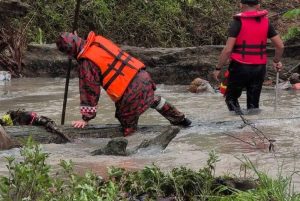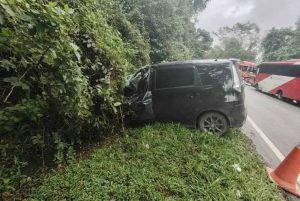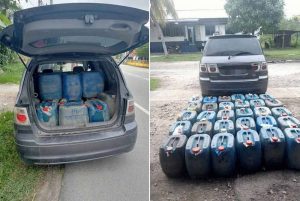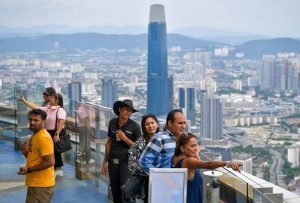KUALA LUMPUR: Home Teaching and Learning (PdPR) sessions for school students should be continued until the current situation of COVID-19 infection in the country is safe, before face-to-face Teaching and Learning (PdP) sessions can be implemented.
While face-to-face sessions are still recognized as the best method of education, PdPR, which can be further enhanced either online or offline, is recognized as the most appropriate method to ensure children are not left behind in education, while COVID-19 remains a major national threat.
A teacher who wanted to be known as Din said, looking at the daily positive cases that still reached five figures at this time, the PdPR session, which is in its second year of implementation is the best and safest initiative to curb the spread of COVID-19 among school children.
“It is good that the PdPR session is continued until the situation is completely safe. Although the practice of standard operating procedures (SOP) can be tightened (if face-to-face sessions are started), we still face the threat of new variants. risky, “he said
The Mathematics teacher at a secondary school in Bukit Baru Melaka said the PdPR session, which was implemented since last year could now be strengthened among teachers through the use of various methods so that the PdP session took place more effectively.
He said the educators were also given various briefings, inputs, and guidance on the effective implementation of PdPR.
Recently, the Ministry of Education (MOE) informed that the PdPR schooling session will continue until 31 August this year, taking into account the current situation of the COVID-19 pandemic as well as discussions with the Ministry of Health (MOH) and the National Security Council (MKN).
The MOE also decided that schools would be opened in stages for face-to-face PdP from September 1, taking into account vaccination rates involving teachers, administrators, and support staff.
A teacher at Sekolah Menengah Kebangsaan (SMK) Dato ‘Zulkifli Muhammad in Slim River, Perak, Noraini Osman said the MOE’s announcement to continue the school session by PdPR until August 31 was definitely for the safety of students due to the high COVID-19 case situation in Malaysia.
“In the current situation of COVID-19, I abide by the MOE’s instructions because PdPR is to ensure that students are safe and (at the same time) do not drop out of learning. Teachers may most have completed two doses of vaccine injections but students are still “not yet (vaccinated). This can also prevent education clusters or school clusters from emerging,” she said.
A mother from Taman Kenanga, Central Melaka, Shahidah Abdul Jalil, 34, said after almost two years of the PdPR method, there were many benefits for her children and she herself could play a role in monitoring their PdPR sessions.
“I have started to be careful and concerned about the children’s school matters. There are times when we both help them complete assignments or homework given by their teachers, especially subjects that are poorly understood both find solutions, sit down to discuss, and indirectly be able to spend time studying with them, “said the mother of four children aged nine to 15.
A student of SMK Lahat in Ipoh, Perak, Nurhaziqah Adilah Razmi, 16, said she was now familiar with PdPR despite experiencing some difficulties for subjects that required experiments and the use of laboratories.
“Teachers help a lot by sharing additional videos,” she said, adding that teachers will also give students online games such as quizzes to make interaction and learning more interesting.
Source: BERNAMA








